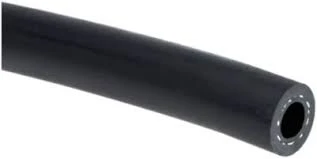Different Types of Fuel Lines for Various Applications and Their Characteristics
Nov . 29, 2024 11:33 Back to list
Different Types of Fuel Lines for Various Applications and Their Characteristics
Understanding Fuel Line Types An Essential Guide
Fuel lines are critical components of any gasoline or diesel-powered vehicle. They are responsible for transporting fuel from the tank to the engine, ensuring that the vehicle runs smoothly and efficiently. Understanding the various types of fuel lines can help mechanics, automotive enthusiasts, and everyday drivers make informed decisions about their vehicle maintenance and repairs. In this article, we will explore the different types of fuel lines, their materials, and their applications in vehicles.
Types of Fuel Lines
1. Hard Fuel Lines
Hard fuel lines are typically made from metals such as steel or aluminum. These lines are rigid and designed to withstand high pressure, making them suitable for high-performance vehicles. Hard fuel lines are usually installed in areas where they won't be subjected to significant movement or vibration. They are often used in the fuel delivery systems of cars, trucks, and motorcycles.
Advantages - High durability and resistance to punctures - Capable of handling high-pressure systems - Generally long-lasting with minimal maintenance
Disadvantages - Limited flexibility; installation can be more complex - More prone to corrosion if not properly treated
Flexible fuel lines, commonly made from rubber or synthetic materials, are designed for versatility and ease of installation. They can be bent and routed easily, making them ideal for use in areas where space is limited or where the fuel system experiences movement, such as in automotive engine compartments.
Advantages - Easy to install and route around obstacles - Resistant to vibrations and movement - Can accommodate a variety of environmental conditions
fuel line types

Disadvantages - Typically have a shorter lifespan than hard lines - May degrade over time due to exposure to fuel and heat
3. Braided Fuel Lines
Braided fuel lines, often made from rubber or plastic with a braided exterior of steel or another durable material, combine the flexibility of rubber with the added strength of the braid. This type of fuel line is commonly used in high-performance applications where durability and pressure resistance are critical.
Advantages - Excellent resistance to high pressure and temperatures - Flexible yet strong, preventing kinking or collapsing - Aesthetically appealing for custom builds
Disadvantages - Can be more expensive than standard rubber lines - Requires careful installation to avoid leaks
Selecting the Right Fuel Line
When selecting a fuel line, several factors need to be considered. First, assess the type of fuel your vehicle uses—gasoline or diesel—as each may have specific requirements. Next, determine the pressure requirements for your fuel system to ensure that the selected line can handle those levels. Be mindful of the environmental conditions, including temperature variations and exposure to chemicals, which can impact the performance and lifespan of the fuel line.
Maintenance and Replacement
Regular inspection of fuel lines is essential for vehicle safety and performance. Look for signs of wear, such as cracks, leaks, or abrasions. If any damage is observed, replace the fuel line immediately to prevent potential hazards, including fire risks and engine performance issues.
In conclusion, understanding the different fuel line types is crucial for anyone involved in vehicle maintenance. With various options available—hard lines, flexible lines, and braided lines—it's important to choose the right type for your specific needs. Regular inspection and maintenance will ensure a safe and efficient fuel delivery system, keeping your vehicle running smoothly for years to come. By being informed about fuel line types and their applications, drivers can make better decisions regarding their automotive needs, ultimately contributing to the longevity and reliability of their vehicles.
